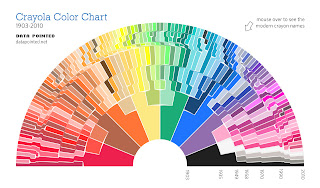Thing 12 Putting the Social into Social Media
 |
| image by Fred Cavazza taken from Flickr |
- are there any other advantages to social networking in the context of professional development than those already outlined above?
- It's cheap! Money is tight I can't currently afford to pay for more classes or travel to attend conferences.
- It's flexible! I am a full time student and now have a part time job, I can participate on my own time.
- can you think of any disadvantages?
With over 700 participants the cdp23 has the advantage of bringing many types of viewpoints and professions. However, there is something to be said for a smaller community. It's an overwhelming task to read and comment on so many blogs. Sometimes it can be overwhelming to be part of such a large thing. I would like to try a program like this on a smaller scale...I am hoping that the Capital District Library Coucil (CLDC) will host another program so that I may compare the experiences.
- has CPD23 helped you to make contact with others that you would not have had contact with normally?
- did you already use social media for your career development before starting CPD23? Will you keep using it after the programme has finished?
account and my Twitter for any "real" profession development purposes I hope to in the future.
- in your opinion does social networking really help to foster a sense of community?
I am all for cloud computing. While its a little frightening to know that people have the ability to hack and data mine your information, I like that I can access my school papers anywhere (and honestly if you want to hack into my account and read them have fun :) . However, I am not a fan of Google docs. I enjoy Google's email services, its blogging platform, its RSS reader, and its search engine but I find Google docs cumbersome. I think this is because I tend to use Microsoft office materials. Sometimes when I use Google docs and Microsoft office tools in conjunction the formatting gets screwed up. While I think this error is mostly due to Microsoft programming I can't afford my papers and presentations being marred or lost.
 Therefore I highly recommend Dropbox. I used a Dropbox account to write a few group papers for one of my classes last semester. Most of my classmates used Macs. I used a PC. Despite the different OS were still able to access and edit Word documents and PDFs with out conflict.
Therefore I highly recommend Dropbox. I used a Dropbox account to write a few group papers for one of my classes last semester. Most of my classmates used Macs. I used a PC. Despite the different OS were still able to access and edit Word documents and PDFs with out conflict. I love wikis! They make something like a proposal or report interesting and interactive. In order to do something different and show off my wiki-skills I created a wiki page to show off my resume information. Let me know what you think?
While you can pay for some fancy wiki programs and services. I highly recommend the free options that are available. So far I have used pbworks, wikispaces, and mediawiki. I have decided to create a little chart so you can easily compare the three...but if I had to pick on pbworks is my wiki of choice. ^.^
Super Scientific Star Scale * - BOO!! ** - not good *** - GOOD **** - i like **** - <3 ! | |||
Usability | *** | **** | ** |
Can’t really complain. It’s pretty simple to use. | It’s very easy to format this page however…all functions may not be a readily apparent as with the other wiki services. However once you get the hang out it everything becomes self-explanatory. I find PBworks the easiest to use. | Adding and editing text is easy. But formatting is more cumbersome because you must remember a series of codes to format. With the other services you have RTF with just a click of a button. It must simpler to make things bold vs. “’bold’”…and bullet listing is just obnoxious | |
Guidance | *** | ** | *** |
Not a much support on site the other two but there are helpful videos and blogs abound! | Great tutorials…but I don’t think it makes up for the cumbersome style | ||
Attractiveness | *** | **** | * |
Not as smooth and attractive as PBworks but still neat and professional without being an eyesore. | Smooth, neat, attractive, but the side bars and top tabs can be a little overwhelming. | If you don’t have programming skills… UGLY! | |
Free Amenities | *** | *** | **** |
·2 GB Storage ·Unlimited users and pages ·10mb per file limit ·Few privacy options | · Limited number of color options · More security options than wikispaces but you must pay more to be able to limit security on an individual page level · Unlimited pages and users · Can add larger files (big pictures and pdfs) | Everything! MediWiki is opensource so it’s basically what you make it…if you’re a newb you may want to try one of the other services because they have more built in features | |
Total Stars: | 12 | 13 WIN! | 10 |
What I Like Most about it? | It’s simple! Not as overwhelming with the weird codes like MediaWiki and easier to understand on your own than PBworks. | The Organization and the Look! I like that it has a backend that you can organize and a front end that looks smooth and clean. | It’s allows Creativity! Because this is open source the creative possibilities are endless. |
sorry it's so small











